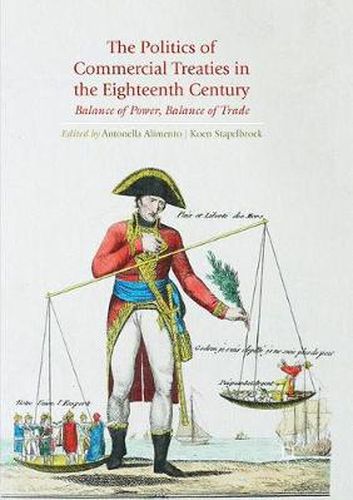Readings Newsletter
Become a Readings Member to make your shopping experience even easier.
Sign in or sign up for free!
You’re not far away from qualifying for FREE standard shipping within Australia
You’ve qualified for FREE standard shipping within Australia
The cart is loading…






This book is the first study that analyses bilateral commercial treaties as instruments of peace and trade comparatively and over time. The work focuses on commercial treaties as an index of the challenges of eighteenth-century European politics, shaping a new understanding of these challenges and of how they were confronted at the time in theory and diplomatic practice. From the middle of the seventeenth century to the time of the Napoleonic wars bilateral commercial treaties were concluded not only at the end of large-scale wars accompanying peace settlements, but also independently with the aim to prevent or contain war through controlling the balance of trade between states. Commercial treaties were also understood by major political writers across Europe as practical manifestations of the wider intellectual problem of devising a system of interstate trade in which the principles of reciprocity and equality were combined to produce sustainable peaceful economic development.
$9.00 standard shipping within Australia
FREE standard shipping within Australia for orders over $100.00
Express & International shipping calculated at checkout
This book is the first study that analyses bilateral commercial treaties as instruments of peace and trade comparatively and over time. The work focuses on commercial treaties as an index of the challenges of eighteenth-century European politics, shaping a new understanding of these challenges and of how they were confronted at the time in theory and diplomatic practice. From the middle of the seventeenth century to the time of the Napoleonic wars bilateral commercial treaties were concluded not only at the end of large-scale wars accompanying peace settlements, but also independently with the aim to prevent or contain war through controlling the balance of trade between states. Commercial treaties were also understood by major political writers across Europe as practical manifestations of the wider intellectual problem of devising a system of interstate trade in which the principles of reciprocity and equality were combined to produce sustainable peaceful economic development.